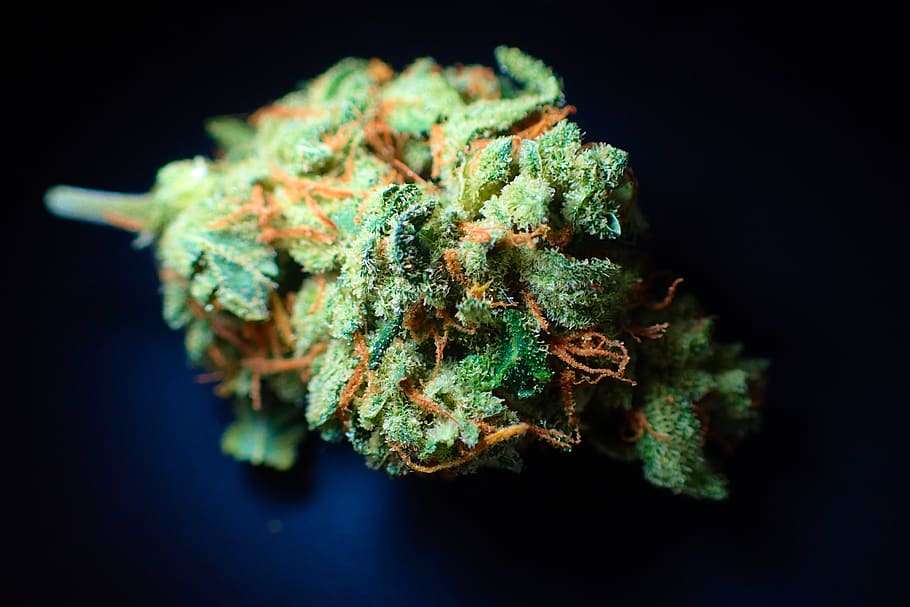Can You Have Withdrawal from Weed?
Short Answer: Yes, and it can be severe. Here’s what you need to know.
Regular marijuana use can lead to dependence, and discontinuing its use may result in severe and uncomfortable withdrawal symptoms as the body adjusts to functioning without the drug. Over time and with continued use, the brain’s own cannabinoid receptors diminish, leading to a greater tolerance for the drug, and with increased use, a greater reliance on it.
Marijuana dependence can be especially dangerous for younger individuals as the risk of developing a marijuana use disorder is greater for those who start in youth or adolescence. If you find yourself experiencing physical or physiological symptoms like nausea, headaches, night sweats, or anxiety after discontinued marijuana use, it’s time to consider finding a local treatment center that can help provide you with the support and care you need to overcome a marijuana addiction.
At Cornerstone of Southern California, our marijuana addiction treatment support programs and medical staff are here to provide personalized patient care and help create a long-term plan for marijuana addiction treatment and lasting recovery.
If you think you might be suffering from marijuana addiction or marijuana withdrawal, keep reading. This blog post will help give you an extensive overview of weed withdrawal and how you can overcome it.
Understanding Cannabis Withdrawal
Before we dive deeper into the actual affects of cannabis, let’s take a look at what a drug withdrawal actually is.
What is Drug Withdrawal?
The term drug withdrawal refers to the type of symptoms that can occur when the body has gone without a certain type of drug for a period of time after prolonged use of that drug. The type of drugs that influences these symptoms are often recreational and pharmaceutical drugs – common ones being heroin, cocaine, meth, Oxycontin, Xanax, and Adderall. However, any chemical dependency can cause withdrawals, including cannabis marijuana.
Cannabis Withdrawal: Is it Real?
Yes, marijuana dependency followed by quitting can lead to withdrawal symptoms. Marijuana's potential for dependency is frequently underestimated, leading to unrecognized or inadequately managed withdrawal symptoms. Cannabis withdrawal can be very uncomfortable, and in cases of severe dependence, may necessitate medical intervention and support to manage symptoms and sustain sobriety long-term.
Factors that Influence Cannabis Withdrawal Severity
While not every individual that tries cannabis or even smokes it on the regular will experience intense withdrawal symptoms, it is important to understand the factors that can often affect cannabis withdrawal severity in order to determine if you or someone you might know might be at risk.
Light vs. Heavy Use Marijuana
Marijuana dependency tends to occur more often in individuals who use marijuana more frequently. This is not black-and-white, however, and will vary person to person. Some individuals who only use marijuana randomly can experience withdrawal symptoms. It’s important to understand your tolerance and pay attention to your body’s reaction before and after marijuana use.
Long-term Marijuana Use
Long-term marijuana use is an extension of heavy-use, wherein the individual is depending on the substance for years. This type of dependency can absolutely lead to marijuana withdrawal symptoms as the body recognizes and responds to the need for continued marijuana intake to function.
Types and Strength of Cannabis Used
Tetrahydrocannabinol (THC) is the primary psychoactive ingredient in cannabis and, after regular use, your body can become dependent and tolerant to its affects, leaving you wanting (and needing) more. While initial strength of cannabis will only affect the level of high you’ll get in that session, over time, with a higher mg dose and frequent use, your body will adapt and require more to function.
Your Age
Age has been shown to be a factor in whether individuals will experience cannabis withdrawal symptoms, as shown in a study conducted by the Journal of Alternative and Complementary Medicine. According to the study, “older and middle-age individuals reported fewer undesirable cognitive, psychological, and physiological effects.”
Cannabis Withdrawal Symptoms
If you or someone you care about is addicted to marijuana or if you are having a hard time stopping it, it’s OK to ask for help. Our counselors are standing by 24/7 to answer your questions, and your conversation will be confidential.
The most common withdrawal symptoms from cannabis, marijuana or weed are sleep disruptions, sweats, headaches, irritability. Symptoms typically show up within 24 hours, peak within a week to 10 days and then start to taper off, although some symptoms like depression, lethargy and mood swings can last for weeks and even longer if they aren’t treated properly. Working with a mental health provider or medical doctor who is trained in addiction and recovery is important during this time, because they can help ease the side effects and lessen the length of time to transition to recovery.
Physical Symptoms of Cannabis & THC Withdrawal
Cannabis withdrawal symptoms can vary from person to person and take on a variety of different forms, including physical and mental stressors. Let’s first take a look at the physical symptoms that can occur from cannabis and THC withdrawal.
Sleep Disruptions and Insomnia
Some people who experience withdrawal symptoms from stopping the use of cannabis have reported vivid and disturbing dreams and nightmares. You might also experience difficulty sleeping or restlessness at night. Your doctor might recommend regular daily exercise, such as walking, swimming or bicycling, to help reset your body’s sleep cycle.
Night Sweats
Night sweats are common when you are detoxing from cannabis and other drugs. It’s your body’s way of clearing out the toxins. Your doctor might recommend avoiding caffeine, which can make your symptoms worse during this time. It’s important to follow a healthy well-balanced diet, drink plenty of non-alcoholic liquids and get rest during this time.
Headaches
Headaches are a common withdrawal symptom, especially in the first couple of days. If you are under the care of an addiction specialist while you are detoxing from marijuana, they will likely recommend over-the-counter medications to help with the headaches. You might also try cold compresses, drinking lots of liquids and rest.
Digestive Issues, Lack of Appetite, & Nausea
Digestive issues, including lack of appetite, nausea, and vomiting can be incredibly common in someone who is suffering from cannabis withdrawal, often affecting over 50% of users.
Emotional and Psychological Symptoms of Cannabis Withdrawal
Emotional and psychological symptoms of cannabis withdrawal can often be much harder to process and deal with for individuals as it can take longer to heal.
Mental health is such an incredibly important part of recovering from marijuana withdrawal which is why it’s so important to speak to a healthcare professional who is equipped to deal with addiction and treatment recovery.
Let’s take a look at the emotional and psychological symptoms of cannabis withdrawal.
Irritability, Nervousness, and Anger
Some people who use marijuana daily and then stop using it may experience mood changes like irritability, nervousness and anger. Again, regular exercise, a well-balanced diet and rest will help ease these feelings. You might also try meditation and breathing exercises, talk therapy with a counselor, and group therapy or recovery.
Anxiety
Anxiety is also an incredibly common symptom of marijuana withdrawals and can often leave individuals feeling fearful, panic-ridden, or nauseous. Typically, anxiety symptoms will lessen over time as withdrawal eases, however, it’s important to speak to a counselor or recovery therapist that can help create a personalized plan.
Depression
On the opposite end of the spectrum, depression can affect individuals suffering from marijuana withdrawals and leave individuals feeling hopeless, overwhelmed, and in severe cases, suicidal. If depressive symptoms don’t alleviate after a few weeks, it’s imperative that individuals contact a counselor for a more thorough recovery plan.
Heavy Marijuana Use Withdrawal Symptoms
Heavy weed use is typically classified as one or more doses daily, while light use is occasional use, like once a month — so you can see there is a wide difference between “light” and “heavy” marijuana use. Regardless, the more you use, the more severe your withdrawal symptoms will be when you stop.
How Long Does Marijuana Withdrawal Last?
The length of time in which an individual will have to deal with a marijuana withdrawal will depend on a few factors (see above.) Since every individual is different, there’s no definitive length of time in which a person will be truly healed, however, for a majority of people, 2-4 weeks is the average for individuals to recover.
How to Get Through Marijuana Withdrawal?
There’s been a decades-long debate about whether cannabis is addictive and, therefore, whether withdrawal symptoms are real. The bottom line is, if you’ve been using marijuana and you stopped and you experienced side effects that we’ve described here, you likely have cannabis withdrawal syndrome. It’s a real thing, and it’s been backed by science.
To lessen withdrawal symptoms or shorten the length of time your body needs to reset and adjust to not using marijuana, your health care provider or recovery team may recommend:
Strategies to Manage Withdrawal Symptoms
Recovering from marijuana or THC withdrawal is never fun and as professional addiction specialists we understand how discouraging it can feel to go through on your own.
While we always recommend finding a licensed addiction therapist and attending a cannabis detox treatment program, here are a few pre-emptive steps to take to lessen the affects of cannabis withdrawal and take back some control.
Therapy: Individual and Group Sessions for Emotional Support
Therapy is an amazing tool for recovery as you get emotional support from a licensed professional who can provide you with a personalized plan of action. Whether you’re looking for individual or group therapy, it’s always important to find a supportive community who can help walk you through the steps to recovery.
Lifestyle Changes: Regular Exercise, Balanced Diet, and Mindfulness Practices
Other key changes that individuals who are struggling with marijuana withdrawals can make is in their lifestyle. This can include getting regular exercises, eating nutritious meals such as lean protein, vegetables, and complex carbs, and introducing mindfulness practices like meditation.
Steps to Marijuana Addiction Treatment
Whether you’ve been dealing with the affects of marijuana withdrawals for a long time or you’re feeling it for the first time, there’s no shame in needing support. Addiction is an incredibly serious issue that, too often, can lead to more dangerous circumstances down the line if not treated.
If you’re looking for an extensive, personalized, and supportive marijuana addiction treatment plan that will help get you the help you deserve, then look no further than Cornerstone. Our compassionate addiction specialists are here to provide you with the tried-and-true, medically-backed strategies that aid in physical and emotional recovery from cannabis dependency.
Here is the extensive selection of options that you can choose from when it comes to marijuana addiction treatment support at Cornerstone.
Cannabis Detoxification Program
The first stage of treatment is to remove the harmful substance from the body in order to properly heal – this is also, for most people, the hardest part. At Cornerstone, our cannabis detoxification program in Orange County, CA is designed without judgment, giving you the compassionate, personalized program assistance required to heal.
Inpatient Addiction Treatment at our Rehab Center
At Cornerstone, we offer intensive residential addiction treatment at our rehab center for individuals looking for personalized, intensive care. No one should go through marijuana withdrawal recovery alone and with the help of our residential clinic staff, recovery treatment is made that much easier.
PHP Day Treatment Recovery Support
Our partial-hospitalization recovery program (PHP) is designed to offer each individual the same personalized, supportive care as our inpatient rehabilitation addiction treatment, but in a manner that’s more realistic and comfortable for our patients.
Intensive Outpatient Program for Marijuana
At Cornerstone, our intensive outpatient recovery program is specially designed to deliver the same recovery skills, therapy, and care as our inpatient program, but in a setting that best supports the individual. Our team of professionals are here to provide meaningful education and hands-on support to meet the needs of each patient.
One-on-One Therapy and Mental Health Support
One-on-one mental health therapy sessions are incredibly important in providing the personalized mental health support that individuals need during treatment. In one-on-one therapy, your therapist will track your progress and give you customized solutions that are tailored to your needs.
Group Therapy Sessions for Emotional Support
Another important type of therapy for those in recovery from marijuana addiction is support group therapy. In group therapy, you’ll heal alongside individuals with the same struggles, which can help in not only receiving but offering supportive care.
A Legacy of Addiction Recovery Since 1984
Since 1984, the experts and supportive care professionals at Cornerstone have been providing elite, trusted addiction and recovery treatment for patients in Southern California. We believe in finding personalized ways for each individual to heal, with science-backed strategies and care that support both mental and physical health.
If you’re looking for marijuana withdrawal treatment and support, contact our team today and find the program that’s right for you.
Additional Marijuana Withdrawal FAQs
What are the side effects of quitting weed?
The side effects of quitting weed can include both psychological and physical symptoms and range from digestive issues, headaches, and sweating to anxiety, depression, and irritability.
How long does marijuana withdrawal last?
The time range for marijuana withdrawal symptoms will vary from person to person, however, in most cases, symptoms will reduce within 2-4 weeks.
Can weed withdrawals cause night sweats?
Yes, a common marijuana withdrawal symptom is frequent night sweating. To aid in reducing discomfort, have a fun or air conditioning running at night.
Why do I sweat so much after quitting weed?
Weed withdrawal sweating can occur for a few different reasons. Internally, the body is in a state of stress, causing the nervous system to trigger sweat glands and increased temperature rate. The body is also trying to remove toxins, which also can be done through sweating.
How long do marijuana withdrawal night sweats last?
Marijuana night sweats can vary, however, in most cases, individuals will see reduced sweating symptoms after 2 weeks. During this time, it’s vital to stay hydrated and keep the body cool.
Cornerstone of Southern California has been helping people with a number of substance use disorders, addictions, and dependencies for over 30 years. Many of our staff have been through the addiction and recovery process themselves, and they’re standing by to talk to you. We’re available 24 hours a day, seven days a week.
Reviewed & Approved
This content has been reviewed for accuracy and comprehensiveness by Dr. Michael Stone, MD, FAAFP, ABAM, FASAM, Founder, and Phil Kosanovich, MBA, President & CEO of Cornerstone of Southern California. If you have any questions or notice any inaccuracies, please contact us at [email protected].
Sources
- Connor, J.P., Stjepanović, D., Budney, A.J., Le Foll, B., & Hall, W.D. (2022). Clinical management of cannabis withdrawal. Addiction, 117(7), 2075-2095. doi: 10.1111/add.15743. Epub 2022 Jan 10. PMID: 34791767; PMCID: PMC9110555. Available at NCBI.
- Bonnet, U., & Preuss, U.W. (2017). The cannabis withdrawal syndrome: current insights. Substance Abuse and Rehabilitation, 8, 9-37. doi: 10.2147/SAR.S109576. PMID: 28490916; PMCID: PMC5414724. Available at NCBI.
- Sexton, M., Cuttler, C., & Mischley, L.K. (2019). A Survey of Cannabis Acute Effects and Withdrawal Symptoms: Differential Responses Across User Types and Age. The Journal of Alternative and Complementary Medicine, 25(3). doi: 10.1089/acm.2018.0319. Available at Liebert Pub.






